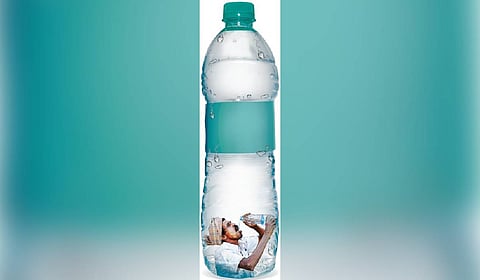

BENGALURU: The Food Safety and Drug Administration (FDA) on Thursday said the presence of pesticide residues and high levels of total dissolved solids (TDS), the primary contaminants, were reasons to flag several packaged drinking water samples from Bengaluru as “unsafe” and “substandard”.
Following an FDA report on 255 samples which was tested, 95 samples across Karnataka were unsafe to drink, and 88 were of substandard quality.
FDA officials told TNIE that out of 27 contaminated samples in Bengaluru, the majority tested positive for pesticide residues, and the rest tested positive for excess TDS and other mineral imbalances, which can potentially affect kidneys and can even cause cancer.
Out of 27 samples, four are from Bengaluru Rural, nine from Bengaluru Urban, and 14 from BBMP limits, comprising two from BBMP East, one from BBMP North, six from South zone and five from BBMP West.
Officials indicated that in addition to the presence of harmful chemicals, they suspect contamination in the packaged drinking water is likely due to improper water sourcing, inadequate filtration, and poor quality control at local bottling units.
“In several cases, the water is directly drawn from borewells situated near agricultural fields where heavy pesticide use is common, leading to chemical seepage into the groundwater,” an official explained, adding that the overall analysis is still ongoing. The official remarked that cases will be registered against manufacturers once the survey is completed.
While the samples were collected to check the general quality of products, legal samples were taken later to check for anything suspicious. Legal samples are collected in the presence of the shop owner, so the samples can be used to take action against the seller, including fines or court cases.
“The presence of high levels of TDS, pesticide residues, calcium, magnesium, fluoride, and iron in packaged drinking water can make it unsafe for consumption. High TDS signal the presence of harmful contaminants. P
esticide residues are dangerous and can lead to serious health problems like hormonal imbalances or even cancer over long-term exposure. While calcium and magnesium are essential minerals, too much of them can cause water hardness, affect taste, and in some cases, lead to kidney issues. Similarly, fluoride can result in dental or skeletal fluorosis,” the FDA official said, explaining how the samples are classified as unsafe and substandard.
Paneer samples test postive for harmful bacteria
FDA also revealed that nine out of the 55 paneer samples tested were found unsafe for consumption, as they contained “salmonella”, a harmful bacterium. Officials said salmonella typically contaminates food due to unhygienic production practices and unclean cooking equipment.
“Despite the contamination, sellers continued to circulate the product, as the bacteria do not affect the paneer’s taste, smell, or appearance, making it dangerous for consumers,” an official said.
In total, the department has collected 249 paneer samples across Karnataka after complaints were raised by the consumers with the Chief Minister’s Office. The CMO has to conduct quality checks, which led to the sample analysis.